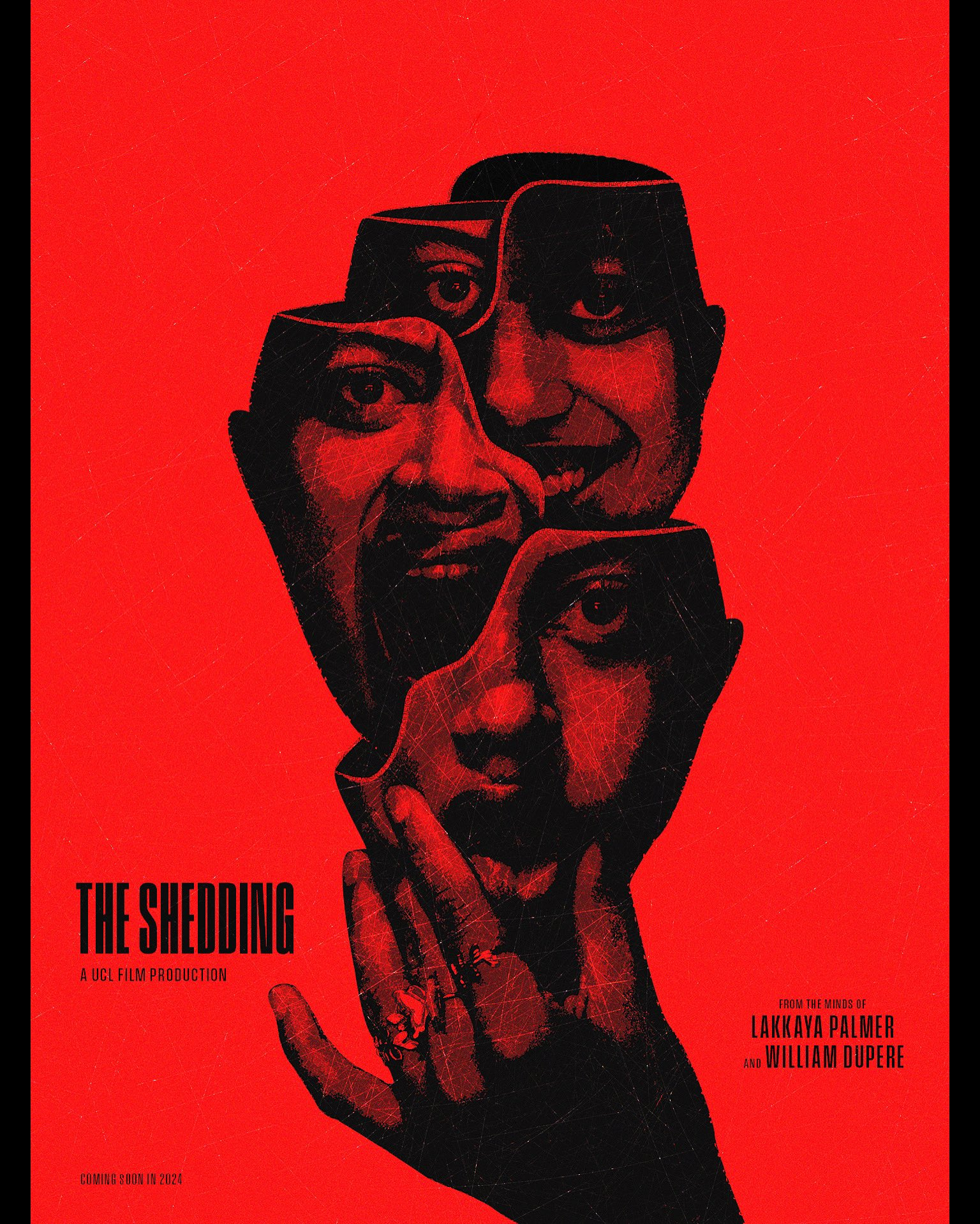‘The Shedding’ Review: A Stunning Portrayal Of The Monstrous Feminine

The quote from Leonardo Donofrio’s Old Country which opens The Shedding—a compelling and stirring horror short from writer/director team William Dupere and Lakkaya Palmer—is a powerful foreshadowing of its thematic concerns of identity, race, and gender.
It’s important to know that The Shedding is an independent horror and psychological thriller, created primarily by students and made on a low, fundraised budget. That fact makes this short film all the more impressive and remarkable.
Embodied with both strength and vulnerability by Jasmine Rachelle, the film’s protagonist Ayida is a primary school teacher on a journey of self-exploration and self-realization. Consequently, Ayida means returner and therefore invokes Robin Wood’s return of the repressed theory.
The school setting serves as a wonderful juxtaposition between the sense of welcome and belonging that should exist and yet is impossible to feel. It’s also a metaphor for the suspended space of childhood. The narrow, dark passages conjure up images of the Nostromo in Ridley Scott’s Alien. They are undeniably female spaces that carry with them the ability to provoke and disturb. Coupled with this is the emptiness of The Shining’s Overlook-style corridors that seem to stretch out dauntingly for miles with no clear end in sight.
Also Read: ‘The Weekend’ Tribeca 2024 Review: Can You Ever Really Escape Your Toxic Family?
Dupere and Palmer contrast these confined environs with the grandiosity of stark and clinical stairwells. In one moment, we track Ayida through a God’s eye shot which—in addition to conveying isolation—suggests an unnerving possibility of surveillance but also of fate, as though indicative of something greater watching from above. The various signs adorning the hallways from the instructive ‘Line up, walk, look’, to a foreboding sea of cartoon faces waving ‘Welcome’ also take on menacing and hostile qualities.
Ayida’s refusal to be controlled by outside influence is apparent when she ignores the early exit arrow, heading in the opposite direction. As she wanders through classrooms that should be bursting with life, spontaneity, and joy, they remain empty and quiet, lit in steely greys and blues. Furthermore, something is knocking, or rather calling our heroine from beyond. Or is it coming from within? Utterly alone, she navigates through corridors and rooms, labyrinthian-like spaces with the monstrous feminine always bubbling just beneath the surface.
As she tries to communicate with a dismissive male colleague (Kosh Vohra), the message is clear: her voice is neither heard nor understood. However, she is about to prove that a woman in a feminine gown can be powerful! She will be known. For ‘woman’ in Dupere and Palmer’s world, occupies space, leaving her scent everywhere while all that man can do is hide under the table, quivering like a child. The stronger she gets, the weaker he becomes.
Also Read: ‘Todd Tarantula’ Review: Reality Distortion May Cause Eyes To Bleed
In a film with little dialogue, costume (designed by Blue Watson) plays an integral role in communicating its central preoccupations. The soon-to-be-shedded woman wears a white dress with a ribboned belt, evocative of fairytales, purity, and innocence. As a primary school teacher, there is a strong sense of Ayida, whose magnetic performance by Rachelle brings us right into her character’s perspective. She’s searching for a childhood she did not experience, looking for a connection with her inner child. Dupere’s score is a strong secondary character in the film. Its constant presence of rhythmic drums and electronic, ambient sounds facilitates emotive cues toward a range of moods and feelings.
When Ayida listens to a voice message from her mother (Maha Palmer) who claims her daughter ‘disappeared’ after dinner, this invites a reflection on the idea of parental severance, of the potential for family being unable to reconcile the child they once knew with the adult they have evolved into. The body is also an important point of focus for The Shedding, with literary nods towards Frankenstein through the inclusion of a science display that Ayida is inexplicably drawn to as she stands on the edge of her transformative journey.
Also Read: ‘Birder’ Review: New Queer Erotic Thriller Bares It All
In a moment invoking Carrie White at the prom, Ayida is empowered at the sight of the red liquid oozing from her finger. For her, it’s a sign of power, of transformation, of transcendence. As we reach the climactic moment involving the removal of skin, Ayida moans in a wonderfully oppositional orgasmic pain. Symbolic layers are stripped back, a refusal to remain in one fixed state.
Watching from the shadows, man is fearful and small, as Ayida’s hand reaches up to penetrate the shot (again, evoking Carrie’s final moment reaching from the grave). She is not just the Star of the Week, as the display reads in the background. She’s grasping for the stars, for all that is available to her and all that is well within her reach. The transformation now complete, the tormenting nature of the drums makes way for an angelic lullaby. Ayida stands triumphant, tall, and free. She is now fully and unapologetically embodying herself.
In its lean and yet beautifully paced running time, this horror short serves to both captivate and entertain. At the end of their film, Dupere and Palmer thank David Cronenberg ‘for everything’ but we ought to thank this pair of extraordinary creatives for their bitesize rumination on identity, selfhood, and the power of transformation.
Coming soon in 2024! Follow The Shedding on X @The_Shedding for updates.

-
The Shedding
Summary
The Shedding is a stunning low-budget short that captures the beauty, power, and horrors of the monstrous feminine.
Categorized: Reviews
